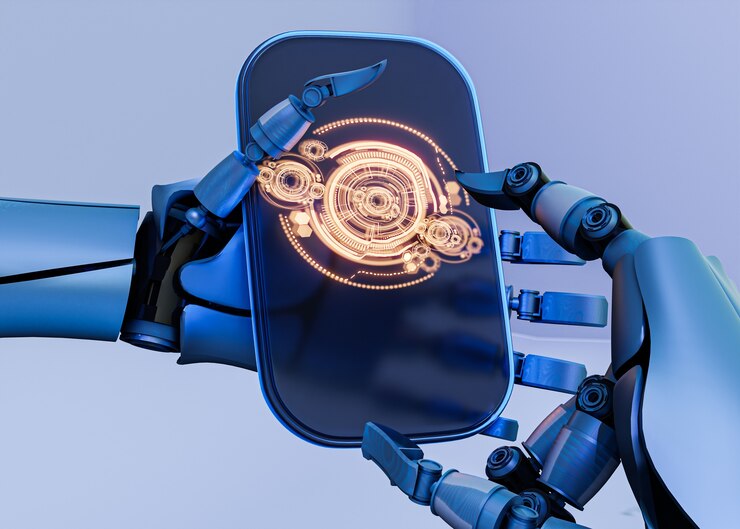
Introduction
Imagine being able to find exactly what you need without even searching for it by launching a smartphone app. Doesn’t that sound magical? This is how machine learning can be used to personalize smartphone apps. Machine learning (ML) is the unseen power influencing your digital experiences, from Netflix suggesting your next binge-worthy show to Amazon suggesting items you didn’t know you wanted.
Businesses need to figure out how to keep people interested as smartphone usage soars. Machine learning can be used by Austin and other mobile app development companies to create smarter, more user-friendly, and highly customized apps. We’ll look at how machine learning improves mobile apps and changes user experiences in this post.
1. Understanding Machine Learning in Mobile Apps
A subfield of artificial intelligence called machine learning allows algorithms to learn from data, spot trends, and make judgments with little assistance from humans. Machine learning (ML) examines user behavior in mobile apps to make pertinent suggestions, automate processes, and improve user engagement in general.
2. Why Personalization Matters in Mobile Apps?
These days, users anticipate that apps will accommodate their preferences. Whether it’s a shopping app that makes relevant product recommendations or a news app that selects stories based on user reading preferences, personalization improves user satisfaction, retention, and conversions.
3. How Machine Learning Powers Personalization?
Mobile apps can be made more personalized through machine learning by:
- Analyzing User Behavior: Determining user preferences by examining patterns of activity.
- Analyzing user needs in advance of their action is known as predictive analytics.
- Adapting app experiences in real time is known as dynamic content customization.
4. Types of Machine Learning Algorithms Used
The following machine learning models are employed in mobile app personalization:
- Supervised Learning: Developed to forecast user preferences using labeled data.
- Finding hidden patterns without predetermined labels is known as unsupervised learning.
- Using user interactions, reinforcement learning enhances decision-making.
5. Real-World Examples of ML in Mobile Apps
- Netflix: Makes show recommendations based on past viewing activity.
- Spotify: Creates customized music selections.
- Amazon: Makes product recommendations based on user browsing habits.
- TikTok: Improves content suggestions with AI.
6. Benefits of Machine Learning in App Personalization
- Increased User Engagement: Users engage more and stay longer.
- Increased Conversion Rates: Purchases are influenced by personalized experiences.
- Effective Marketing: AI-powered insights aid in audience targeting.
7. Challenges and Limitations
- Notwithstanding its advantages, machine learning in mobile applications has drawbacks like:
- Data Privacy Issues
- High Costs of Implementation
- Algorithm Prejudice and Moral Concerns
8. How a Mobile App Development Company in Austin Can Help?
A mobile app development company in Austin specializes in integrating machine learning to create personalized user experiences. They help businesses leverage AI-driven insights for smarter, more engaging apps.
9. Future Trends in Mobile App Personalization
- AI-Powered Voice Assistants
- Hyper-Personalized Content Delivery
- Augmented Reality (AR) Personalization
- More Sophisticated Chatbots
10. Best Practices for Implementing ML in Apps
- Start with Clear Goals
- Ensure Data Privacy Compliance
- Continuously Train and Improve Models
- Test and Optimize User Experience
11. Privacy and Ethical Concerns
- Transparency in Data Collection
- User Consent for Personalization
- Avoiding Algorithmic Bias
12. How to Get Started with ML for Your App?
- Identify Key Areas for Personalization
- Choose the Right Machine Learning Model
- Partner with an Experienced Development Team
13. Conclusion
Machine learning is revolutionizing mobile app personalization, making experiences more engaging and intuitive. Businesses looking to stay ahead should consider integrating AI-driven personalization into their apps. A mobile app development company in Austin can help turn this vision into reality by leveraging the latest ML technologies.
14. FAQs
- How does machine learning improve mobile app personalization?
Machine learning analyzes user data, predicts preferences, and delivers customized content, improving user experience and engagement. - What industries benefit the most from ML-driven app personalization?
Industries like e-commerce, entertainment, healthcare, and finance benefit greatly from ML-powered personalization. - Are there any risks associated with using machine learning in apps?
Yes, risks include data privacy concerns, algorithm bias, and high development costs. - How can a mobile app development company in Austin help with ML integration?
They provide expertise in AI and ML to create smarter, data-driven applications that enhance user experiences. - What’s the future of machine learning in mobile apps?
Future trends include hyper-personalization, AI-driven voice assistants, and enhanced AR experiences.




Leave a Reply